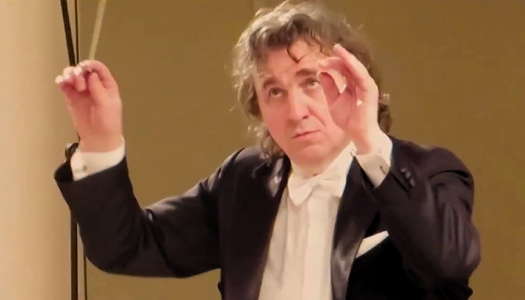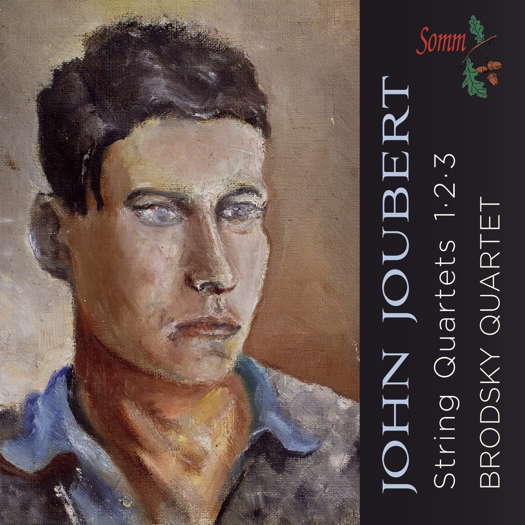 DISCUSSION: John Dante Prevedini leads a discussion about Music and the Visual World, including contributions from Celia Craig, Halida Dinova and Yekaterina Lebedeva.
DISCUSSION: John Dante Prevedini leads a discussion about Music and the Visual World, including contributions from Celia Craig, Halida Dinova and Yekaterina Lebedeva.
Exceptionally Vivid Playing
MIKE WHEELER listens to a highly charged performance by the National Symphony Orchestra of Ukraine
The National Symphony Orchestra of Ukraine's recent UK tour included a Nottingham concert that was every bit as highly-charged as expected - Royal Concert Hall, Nottingham, 4 November 2023 - as, no doubt, were the other tour dates.
The orchestra, and conductor Volodymyr Sirenko, were joined by the Boyan Ukrainian Male Voice Choir and Zahrava Ukrainian Ladies Choir to open the concert with the Ukrainian national anthem, and in the interval, Nottingham Ukrainian Ensemble gave a short performance in an upper-level foyer.
And it was with Ukrainian music that the concert itself began. Borys Lyatoshinsky's twenty-minute tone poem Grazhyna was written in 1955 to mark the centenary of the death of Polish poet Adam Mickiewicz. Based on his narrative poem of the same title, it tells the story of the Lithuanian princess who leads her army against invading Teuton knights. She is killed but a stranger arrives to complete what she started. He turns out to be her husband, Prince Litavor. But instead of a victory celebration, he joins Grazyna on her funeral pyre.
In the atmospheric opening, the winding viola line representing the river flowing past Grazhina and Litavor's castle was a mere whisper, against a plangent-toned cor anglais theme standing for Grazhina herself. The cellos led an abrupt change of mood. The Teutons' hymn was suitably loud and brassy, leading to a pile-up of Grazhyna's and the Teutons' themes, but however intricate the textures, the details all came across. Orchestra and conductor nicely caught the mixture of public gravitas and personal grief in the funeral march, with Grazhina's theme now a lament. The river-music's fade-out was nicely judged.
Soloist Antonii Baryshevskyi didn't so much start the unaccompanied opening to Beethoven's Fourth Piano Concerto as coax it into life. It was symptomatic of playing that combined strength and delicacy, in a performance emphasising the work's lyrical character, while at the same time ensuring a strong current of energy. His self-composed cadenza went way beyond anything Beethoven would have recognised, verging on the expressionistic, and his pick-up afterwards had something of an improvisational quality. In the second movement's dialogue, the strings were positively gruff, the piano almost pleading in response, and the ending sounded a genuinely poignant note. As the finale emerged from this, the playing turned frisky and capricious, with the piano and orchestra exchanging some entertaining banter, stamping and emphatic one moment, serene the next, all admirably straight-faced, and culminating in another madcap cadenza. An engrossing, refreshing performance all round. Baryshevskyi's encore was the contemplative Agnus Dei by Ukrainian-Dutch composer Maxim Shalygin.

Antonii Baryshevskyi. Photo © Valentyn Kuzan
The performance of Sibelius's Symphony No 1 had an attractively rough-hewn, epic quality. The slight edge to the solo clarinet's tone in its long opening theme was apt, and the main part of the first movement was predominantly dark and stormy. Abrupt switches of tone were emphasised, without ever threatening to sap momentum or tension. Finely-graded dynamics in the second movement ensured that the warmth of the central pastoral episode was well integrated with the rest, as was the turmoil later, while the calm at the end felt provisional, before the third movement's pounding energy took over. The gentle middle section featured a poised, limpid flute solo. After an attention-grabbing start to the finale, the first appearance of the big tune combined serenity, lament and aspiration, and at its reprise at the end, it sailed out, full of tensile strength. As throughout, there was nothing indulgent or romanticised in this performance; it snarled fiercely when it needed to, and if the players sounded defiant at times, well that was perfectly understandable in the circumstances.
We were left with two encores, both by major nineteenth-century Ukrainian composer Mykola Lysenko: his spinning waltz Separation, and the fiery overture to his opera Taras Bulba.

Volodymyr Sirenko
Throughout the evening we were treated to some exceptionally vivid playing, and having the violins divided left and right on the platform enhanced the tonal clarity. It will be good to hear this fine orchestra again, hopefully in happier times.
Copyright © 11 November 2023
Mike Wheeler,
Derby UK




